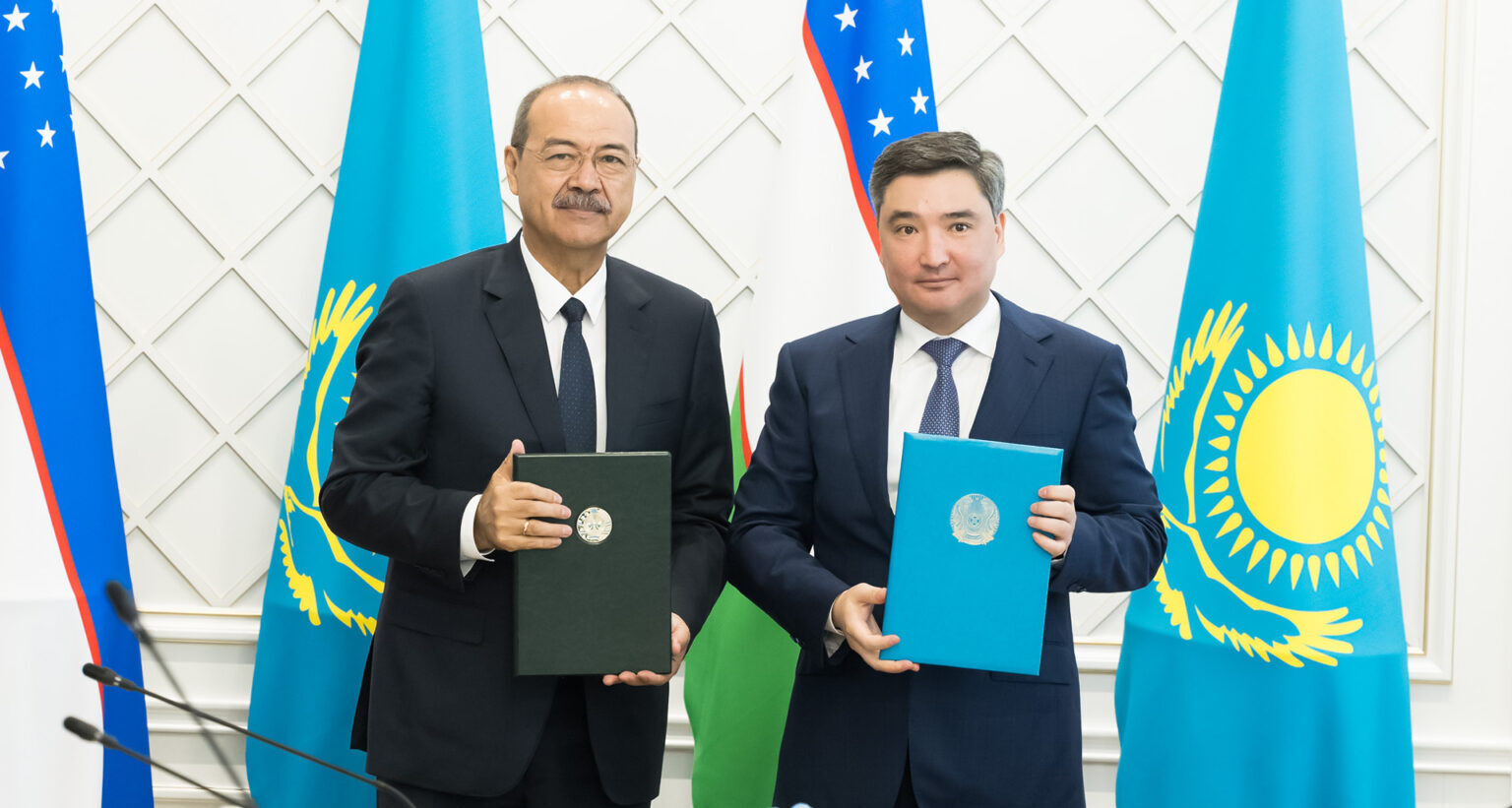ASTANA (WNAM REPORT) : Kazakhstan and Uzbekistan aim to double their mutual trade to $10 billion, Kazakh Prime Minister Olzhas Bektenov said during the 21st meeting of the Joint Intergovernmental Commission on Bilateral Cooperation, co-chaired with Uzbek Prime Minister Abdulla Aripov, on July 12 in Almaty.
Doubling the trade to $10 billion is the target the two heads of governments set. According to the Prime Minister’s press service, Kazakhstan and Uzbekistan account for 57% of all Central Asian trade. Trade turnover was $4.5 billion in 2023, exceeding $1.2 billion in the first four months of 2024.
Over the past five years, trade turnover between the two countries increased by 29.5%, reaching $4.4 billion. Kazakh exports rose by 56.9%, from $2 billion to $3.1 billion, while imports decreased by 9.1%, totaling $1.3 billion in 2023.
“Uzbekistan is one of Kazakhstan’s largest trading partners. The heads of our two states have tasked our governments with increasing mutual trade volume to $10 billion in the medium term. In this regard, we are interested in expanding trade in the agro-industrial complex and the food industry and enhancing industrial cooperation,” said Bektenov.
The two countries are implementing 69 industrial projects worth $3.1 billion, expected to create over 14,700 jobs. So far, 12 joint projects worth $217 million have been completed, creating around 4,500 jobs. Three investment projects valued at $178 million are underway, including a large project for an electrometallurgical plant in Taraz with a capacity of 500,000 tons of steel products.
Another major initiative is the construction of the International Center for Industrial Cooperation on a 100-hectare area in the Turkistan Region of Kazakhstan and the Syrdarya Region of Uzbekistan, which aims to foster joint production.
Both countries plan to expand cooperation in mechanical engineering to boost the mutual supply of electrical products and batteries annually.
Measures to enhance transport sector interconnections, develop railway infrastructure, and eliminate bottlenecks facilitate the increase in cargo turnover.
Recognizing the importance of water sector cooperation, both countries are developing tools for further collaboration, including joint steps to digitize and automate water distribution areas.


